Are global business surveys bottoming?
A recent contraction in G7 industrial output was signalled by a mid-year plunge in the purchasing managers’ new orders index. The last PMI datapoint in the chart is for July, with an August reading awaiting tomorrow’s US ISM results.
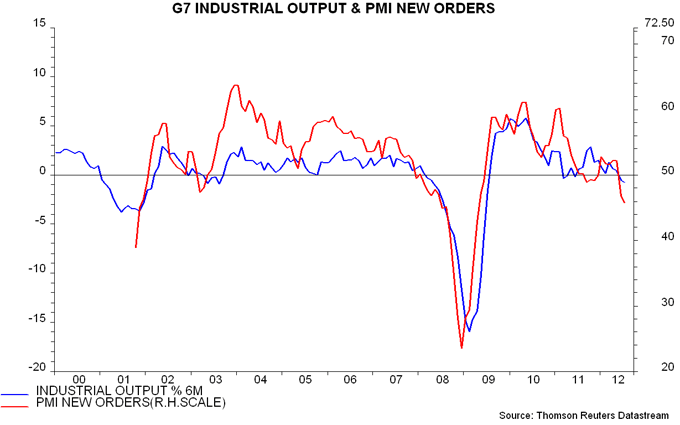
Output weakness, however, has been focused on Japan and Europe, with the US displaying remarkable resilience. Coming US numbers could disappoint as this gap narrows.

Available August PMI results have been mixed but, on balance, no worse than expected. The UK orders index rebounded sharply and Euroland edged higher, while China and Japan weakened modestly further. The G7 aggregate may be at or near a bottom. It leads output by a month or two, so this would be consistent with the “monetarist” prediction that global momentum will bottom in October / November and revive into 2013 – see previous post.
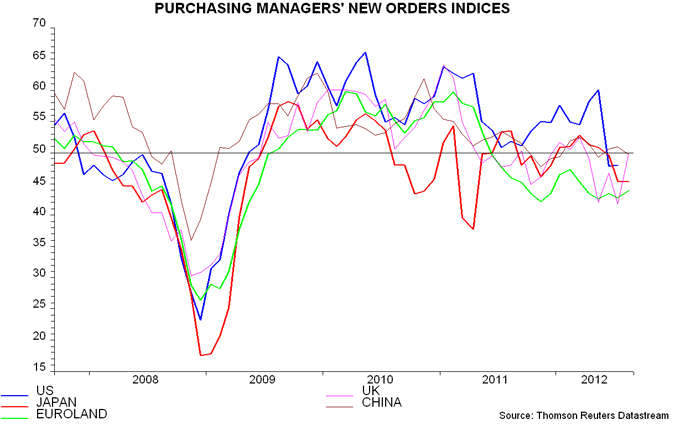
The suggestion that business surveys are tracing out a trough is supported by an uptick this month in the Korean FKI business survey expectations measure, which often moves just ahead of G7 PMI new orders, reflecting the Korean economy’s sensitivity to the global cycle.
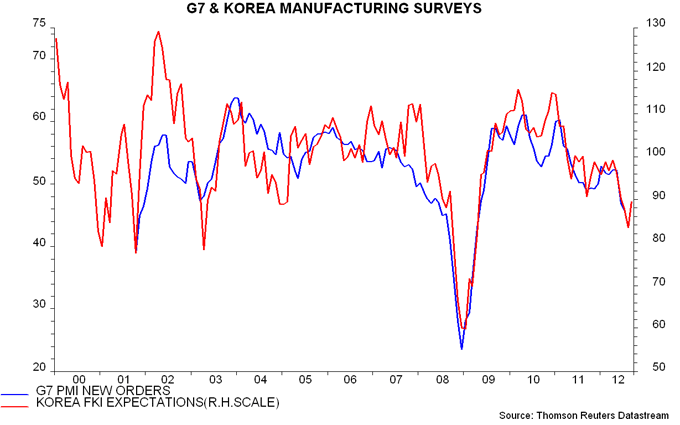
Industrial output is preferred here to GDP for the purposes of cycle analysis because it is more timely, frequent and reliable, and correlates better with stock market earnings. The unreliability of GDP numbers is highlighted by the often-large deviations between the expenditure, income and output measures of the concept in early releases. US headline expenditure-based GDP, for example, grew by 0.4% (1.7% annualised) in the second quarter but the alternative gross domestic income (GDI) measure rose only 0.1% (0.6%). This holds out a glimmer of hope to stale bears (ECRI, Hussman etc), since a 2007 Fed study suggested that GDI is earlier to recognise the onset of recessions.
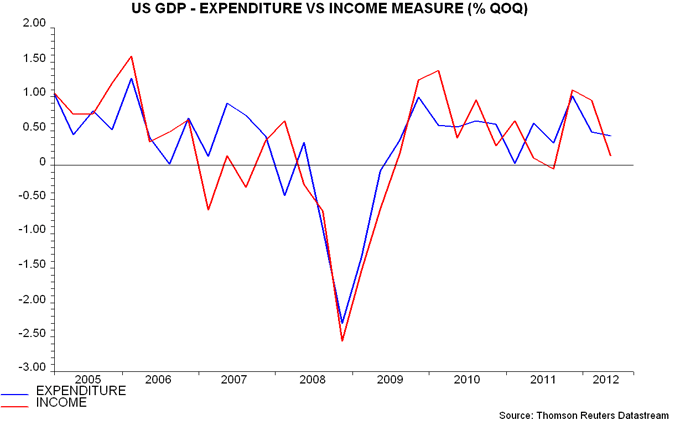
Early UK headline numbers rely on output rather than expenditure or income. The reported 0.5% decline in the second quarter obscures a huge divergence between a 1.1% plunge according to the expenditure measure and 0.5% growth according to the income measure – the latter fits with recent labour market resilience. Take your pick – or, better still, disregard entirely.
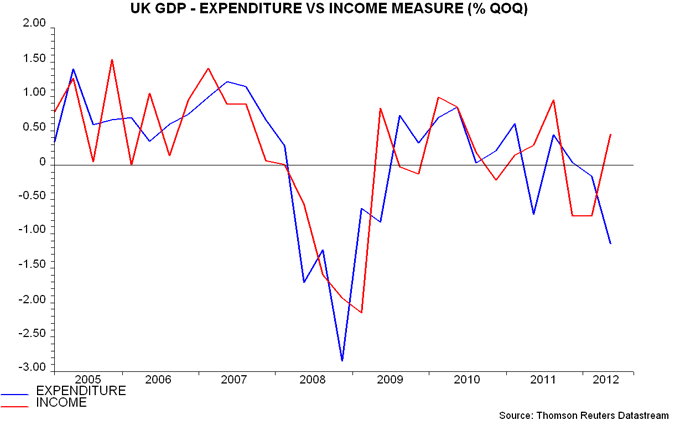

Reader Comments